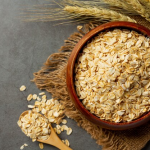According to a new study, approximately two-thirds of heart attack cases can be prevented by managing lifestyle, environmental, and personal health risks. Researchers found that addressing 56-day risk factors for sudden cardiac arrest (SCA) could prevent up to 63% of cases.
To investigate heart attack risks, researchers analyzed data from more than 502,000 people participating in the UK Biobank, a long-term health study in the United Kingdom. Of the participants, 3,147 suffered a sudden heart attack during an average follow-up period of approximately 14 years. The researchers compared heart attack victims with healthy individuals using 125 potentially modifiable risk factors, including diet and exercise, smoking and drinking, depression and loneliness, exposure to pollution, employment and finances, obesity, and blood pressure. The analysis identified 56 risk factors strongly associated with sudden heart attacks; 25 of these were effective in 10% to 17% of cases. These included smoking, exercise, TV viewing time, obesity, sleep, breathing difficulties, hand grip strength, and education level.
The researchers found that lifestyle habits had the greatest impact on heart attack risk and that addressing issues such as proper nutrition, exercise, smoking, and alcohol consumption could reduce potential cases by up to 18%. Overall, the researchers concluded that heart attack cases could be reduced by 40% to 63% if people addressed or completely eliminated their strongest risk factors. The researchers said they were surprised to find that time spent at a computer (a sedentary behavior) had a protective effect. The study said this could be due to higher education among computer users rather than a direct protective effect. The team also identified factors that could reduce the risk of heart attacks, such as increased consumption of champagne or white wine, maintaining a positive mood, losing excess weight, controlling blood pressure, and getting more education. One of the most intriguing findings of the study is that the cardioprotective effect associated with champagne and white wine consumption challenges the long-standing assumption regarding the specificity of red wine’s cardioprotective properties.









